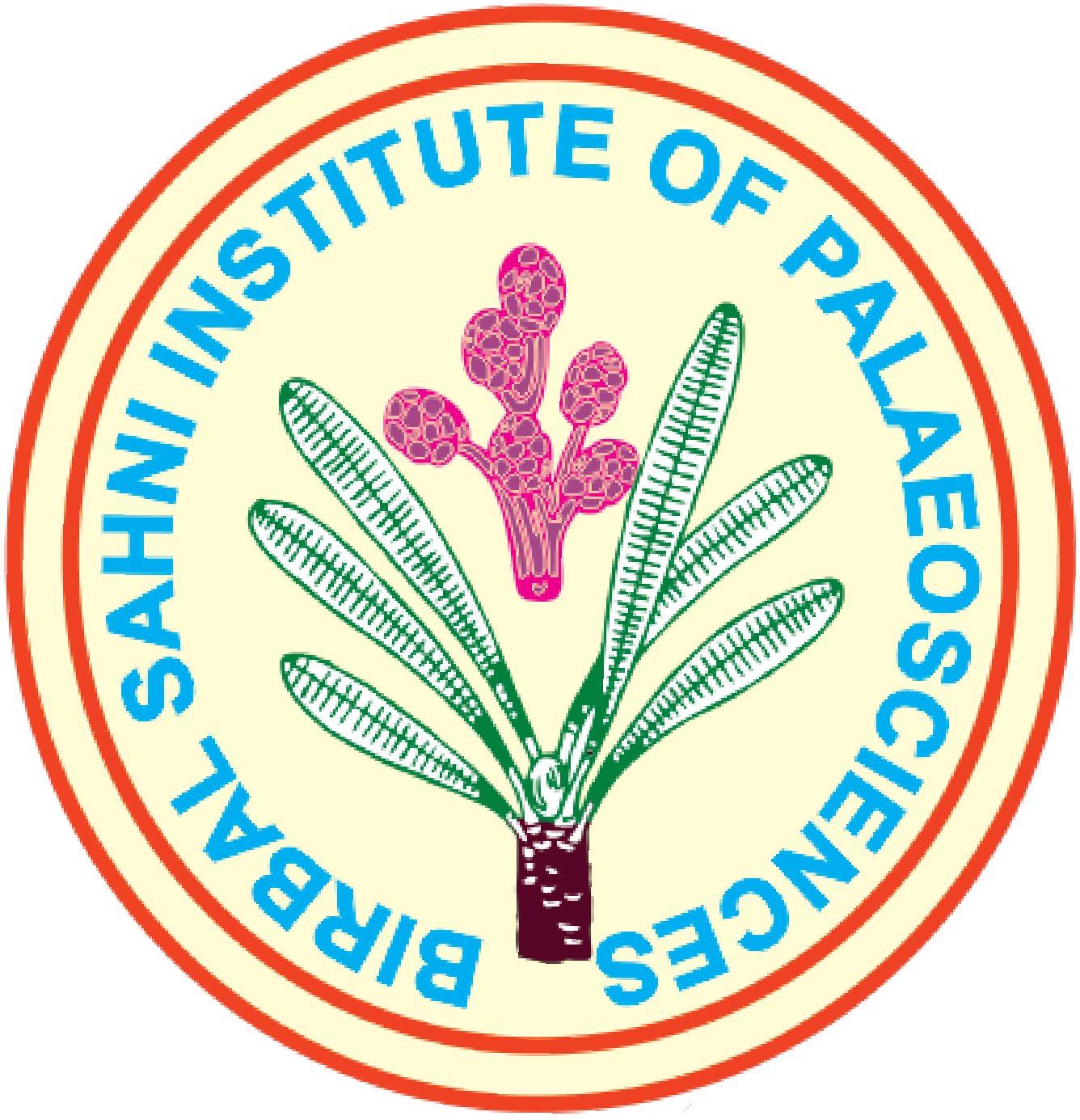Phyllanthinium bangalamodense : A new species of fossil Euphorbiaceous wood from the "Cuddalore series" of India
DOI:
https://doi.org/10.54991/jop.1960.591Abstract
The anatomy of a petrified dicotyledonous wood is described from the Tertiary rocks of the Cuddalore series, South India. The fossil specimen shows close resemblances with the woods of the Phyllanthoidae group of Euphorbiaceae.
Downloads
Metrics
References
BAILEY IW (1924). The problem of identifying the wood of Cretaceous and later Dicotyledons: Paraphyllanthoxylon arizonense. Ann. Bot. 38: 439-451.
BAILEY IW (1933). Structure, distribution and diagnostic significance of vestured pits in Dicotyledons. J. Arnold. Arbor. 14: 259-273.
BANCROFT H (1932). Some fossil dicotyledonous woods from the Miocene (?) beds of East Africa. Ann. Bot. 66: 746, 747.
BOUREAU E (1951). Etude palaeoxylogique du Sahara (XV). Sur un nouveau bois minerlise, Euphorbioxylon lefrancii n. sp. Recolte en Algerie au nordouest de Fort-Flatters. Bull. Mus. Nat. Hist. Paris. 23 (6): 706-712.
BOUREAU E (1957). Anatomie Vegetale. 3. Paris.
CHOWDHURY KA (1945). Regional keys for identification of important timbers used in Military areas of inspection. Indian Forest Rec. 3: 1-55.
CHOWDHURY KA (1953). On the Tertiary flora of Eastern India. The Palaeobotanist. 1: 121-125. https://doi.org/10.54991/jop.1952.405
FELIX J (1887). Untersuchungen uber fossile Holzer 3. Ztschr. Geol. Ges. 39: 1-35.
FOXWORTHY FW (1907). Philippine woods. Philipp. J. Sci. 2: 351-404.
GAMBLE JS (1922). A Manual of Indian Timbers. London.
HOOKER JD (1885). The flora of British India. 5. London.
JANSSONIUS HH (1929). A contribution to natural classification of the Euphorbiaceae. Trop. Woods. 19.
KANEHIRA R (1924a). Identification of Philippine woods by anatomical characters. Bull. Govt. Res. Inst. Taihoku (3): 1-69.
KANEHIRA R (1924b). Anatomical notes on Indian woods. Ibid. (4): 1-37.
KANEHIRA R (1926). Anatomical characters and identification of important woods of Japanese Empire. Ibid.: 1-30.
KRUSE HI (1954). Some Eocene Dicotyledonous woods from Eden Valley, Wyoming, Ohio. J. Sci. 54(4): 260, 261.
KRISHANA MS (1949). Geology of India and Burma. Madras.
METCALFE CR & CHALK KP (1950). Anatomy of Dicotyledons. 1 & 2. Oxford.
MOLL JW & JANSSONIUS HH (1908). Mikrographie des Holzes. Leiden.
NAVALE GKB (1955). On two new species of Terminalioxylon Schonfeld from the Tertiary beds of South India. The Palaeobotanist 4: 35-40. https://doi.org/10.54991/jop.1955.467
NAVALE GKB (1956). Sapindoxylon indicum sp. nov.: a new fossil wood from the Tertiary bed of South India. The Palaeobotanist 5(1): 73-77. https://doi.org/10.54991/jop.1956.489
NAVALE GKB On the occurrence of fossil Cynometra from the Tertiary beds of South India. MS.
OGURA Y (1932). On the structure of Hobashiraishi, a famous silicified trunk at Najina near Fukuoka City. Jap. J. Bot. 4: 173-190.
PEARSON RS & BROWN WP (1932). Commercial Timbers of India. Calcutta.
PRAKASH U (1957). Studies in the Deccan Intertrappean Flora. 3. On a new species of fossil woods of Euphorbiaceae from the Intertrappean beds of Madhya Pradesh. The Palaeobotanist. 6(2): 77-81. https://doi.org/10.54991/jop.1957.559
PRAKASH U Studies in the Deccan Intertrappean Flora. 4. On two silicified woods from the Intertrappean beds of Madhya Pradesh. MS.
PRAKASH U (1953). Fossil woods resembling Mangifer, Shorea and Albizzia in the Tertiary rocks of South Arcot, India. Curr. Sci. 22: 336, 337.
RAMANUJAM CGK (1954). On some silicified woods near Pondicherry. The Palaeobotanist. 3: 40-50. https://doi.org/10.54991/jop.1954.450
RAMANUJAM CGK (1954a). Fossil woods belonging to Guttiferae, Celastraceae, Leguminosae, Sonneratiaceae and Euphorbiaceae from the Tertiary rocks of South Arcot District, Madras. J. Sci. Industry. Res. India. 13B: 146-147.
RAMANUJAM CGK (1955). Fossil woods of Dipterocarpaceae from the Tertiary rocks of South Arcot District, Madras. Ibid. 4.
RAMANUJAM CGK (1956). On two new species of Teminalia Schonfeld from the Tertiary rocks of south Arcot District, Madras. J. Indian Bot. Soc. 35: 103-113.
RAMANUJAM CGK (1956). On the occurrence of Fossil woods of Sonneratia, Sonneratioxylon dakshinense sp. nov. from the Tertiary of South Arcot District, Madras. The Palaeobotanist. 5 (2): 78-81. https://doi.org/10.54991/jop.1956.490
RECORD SJ & MELL (1924). Timbers of Tropical America. New Haven.
SOLEREDOR H (1908). Systematic anatomy of the dicotyledons (translated by C. A. Boodle and F. E. Fritsch). 2. Oxford.
WATARI S (1943). Studies on the fossil woods from the Tertiary of Japan. III. A large silicified trunk of Phyllanthinium pseudohobashiraishi Ogura from the Palaeogene of Tobata City. Jap. J. Bot. 13: 255-260.
Downloads
Published
How to Cite
Issue
Section
License

This work is licensed under a Creative Commons Attribution-NonCommercial 4.0 International License.









